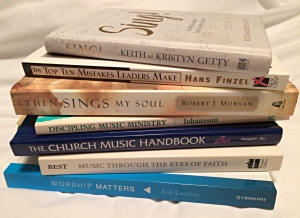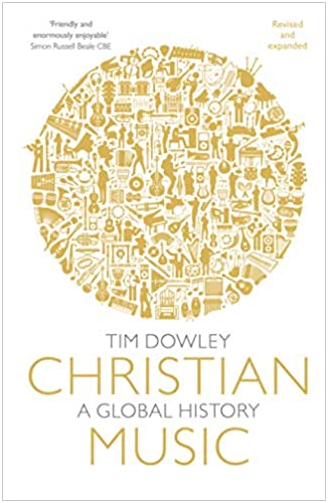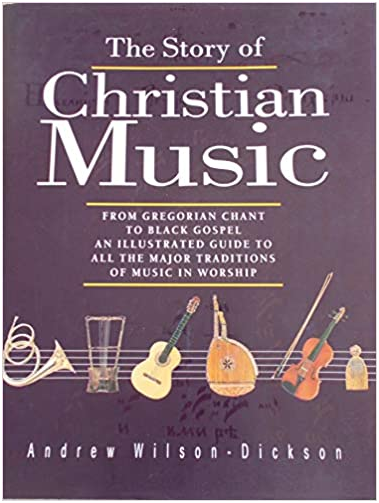
See substantive interview below, “Why do we need a church music philosophy in the first place?”
What if your art is part of a bigger picture, part of a daily grace God has in mind for someone else? – Emily P. Freeman
Our work can be a calling if it is reimagined as a mission of service to something beyond merely our own interests. – Timothy J. Keller
Music’s extraordinary capacity to elevate the mind and illuminate the heart has inspired poets and composers throughout the ages. At times, music seems able to express the inexpressible, touching souls with an ineffable power in a way that words alone cannot. – Mack Wilberg, director of The Mormon Tabernacle Choir.
When ministry becomes performance, then the sanctuary becomes a theater, the congregation becomes an audience, worship becomes entertainment, and man’s applause and approval become the measure of success. But when ministry is for the glory of God, his presence moves into the sanctuary. Even the unsaved visitor will fall down on his face, worship God, and confess that God is among us. – Warren and David Wiersbe
We are designed to benefit from beauty and our creativity. Have you ever wondered why we sing our national anthems and don’t just recite them? Or why as children we learn all our alphabet through singing rhyming songs rather than simply a series of monotone spoken sounds? It is because God made us to be powerfully engaged in our senses and memories by music. Songs have the power to prompt the memory or to transport us back to some other time and place. Our sense of imagination is another aspect of the dignity we have been given as human beings by God. It should not be belittled, but embraced and nurtured, especially by the artistic endeavors of every local church. Songs reach the inner corridors of our soul in a way that other things cannot. This is part of why we tend to have such heated conversations about what we like in our church music, because it moves us so deeply. We are designed as beauty appreciators. It matters to us. –SING! by Keith and Kristyn Getty
Clearly, God did not create beauty in vain. If we are going to care for our soul, and if we know that our soul is nurtured by beauty, then we will have to understand beauty more deeply and give it a more prominent place in our lives. Religion has always understood the value of beauty, as we can see in our churches and temples, which are never built for purely practical considerations, but always for the imagination. A steeple, or a stained glass window, or the casing of an organ is not designed to allow additional seating, or better lighting for reading. They speak to the soul’s need for beauty, for love of the building itself as well as its use, for a special opportunity for sacred imagination. – Thomas Moore; Care of the Soul
Whatever is true, whatever is honorable, whatever is right, whatever is pure, whatever is lovely, whatever is of good repute, if there is any excellence and if anything is worthy of praise, dwell on these things. Philippians 4:8
Mediocrity never is spiritual. God knows when a performance is diligently prepared or carelessly “thrown together”; he notices every detail, and nothing escapes him. He knows when the music has something of value to say, and he knows when it reveals the creative impoverishment of the author, composer, performer, or all three. That he not only accepts, but even desires, our imperfect sacrifices of praise is a wonder of his love and grace. We abuse his generosity when we presume that anything we bring to him, regardless of its condition, must be received with gratitude—or assume that he can like only what we like.
When we assume that quality is either all-sufficient or immaterial, we have a deficient view of God. Our obligation is to meet the requirements of our art in the best way we can to glorify God better. Unlike the artist who serves the art, we serve the God of the art. Therefore, of all people, we should be motivated to make whatever sacrifices are necessary to manifest excellence—to honor him before others, to please him, and to reflect the fact of our creation in the image of the Creator. – Richard Dinwiddie; The God Who Sings
After 20 years in music ministry, I firmly believe that we need to strive to discover the musical DNA of our own church. Each church is unique in its membership. And as we seek to enable our members to use their gifts, we need to find our own musical DNA for an authentic expression of our faith. We are not simply copying or borrowing a worship tradition that may or may not fit our own church or our denomination‘s unique history.
A multi-generational approach will help to include all ages and avoid fragmentation along age divisions. Furthermore, I believe that we need to seek to find a balance between the cognitive and the emotive given Paul’s admonition to “sing with the spirit and also understanding.” And finally, we must recognize both God’s transcendence and His Imminence. I like to remind my church choir and my musicians that we are to 1.) proclaim God’s Word in Song, 2.) encourage the congregation to sing their faith, and 3.) sing to and not just about the Living God. – Dr. Ben Caston: Southwestern Baptist Theological Seminary
HIGHLY RECOMMENDED ARTICLES:
The WHY of Music Ministry from SING! Conference (start video at 00:10) – see link below for session handout
HIGHLY RECOMMENDED BOOKS:

Christian Music: A Global History was originally published by Lion Hudson in 2011. This new edition has been substantially extended and updated. Dr. Tim Dowley’s wide-ranging survey includes contributions from nine additional experts. The book covers the Jewish musical tradition; early hymns and psalms; music after Constantine; the rise of music in the Orthodox tradition; Christian chant and the core of medieval music; polyphony in the medieval and Renaissance eras; music and the Lutheran Reformation; the rise of Catholic Baroque; the development of Anglican worship; Christian music in Latin America; the Viennese tradition of liturgical and non-liturgical sacred music; sacred music in the age of Romanticism; 19th-century hymns; the steadily developing tradition of Christian music in Africa; sacred music and the concert hall; music and The Salvation Army; the rise of carols; popular church music in the 20th century; the making of the American Gospel tradition; Christian music in SE Asia; musical traditions in Australia and New Zealand, and in the Pacific Islands; Christian elements in the rise of folk and jazz; and the rise of the contemporary Christian music industry.

This is an illustrated introduction to the history and practice of Christian music from Gregorian chant to Black gospel. The main body of the text goes through the whole vast panoply of Christian music’s history. The book looks at music in the Orthodox tradition and in Africa, as well as music for worship in 20th-century Europe and America. There are musical examples, color photos, & illustrations throughout the book.
An interview with former ACNA Music Task Force Chair:
Mark K. Williams
Mark, why do we need a church music philosophy in the first place?
Many years ago, in Graduate School, while I was studying for a degree in Church Music, one of the final courses we took was titled, “Church Music Philosophy”. The class was a weekly round-table discussion on the subject and the course ended with each student writing his or her own philosophy for their future work in leading church music. This turned out to be a pivotal event in my life as it clarified much of what I was to be about in my own ministry, and it has provided for me a rudder, some guiding principles, through the many years since.
Without these principles I believe that I would have continued merely with the underlying motivations of my youth: working to impress my music teachers or my parents and often falling into the futile trap of trying to please everyone or to continually seek validation or praise from others in my work of ministry. Guided by these healthy principles, I began to use my music making and leadership as a means to a much greater end, not music merely for music’s sake but to use music as a means to worship God and to reveal His glory. In the end, I do not want people to visit our church and to leave there talking about what a great music ministry that our church has. I want people to leave the church talking about what a great God we all have.
What about music styles and effective choice and leadership of music for the congregation’s worship?
I have come to a place that the style of a piece of music is not so important. Musical expression of God’s love and grace through the Gospel is certainly larger than any singular style of song. To me then, what is important is that the choice of music has these quality traits: first, that it is singable by the congregation and was composed with this in mind (it is not a soloistic piece of music); second, that the melody of the song is well-crafted and that there is a good marriage between the melody and the text; third, that the music, as much as possible, is in a key that the congregation can sing (no notes below the A below middle C and no notes above high D); fourth, that the music carries some level of high intrinsic value and that it has stood the test of time, however long; and finally that the choice of music fits the liturgical year or the theme for the day for worship. The primary goal here is that appropriate, quality music is chosen for the work of the people: music that the congregation can successfully participate in singing, not that the congregation watches the musical leadership sing.
Also, I repeat new songs often to allow the congregation to become familiar enough with the music that they can eventually move from learning it to worshiping through it. If it’s a new hymn or praise song, we sing it three Sundays in a row so that the congregation can grow into it. We also know after three weeks whether a new song has taken or not. Most importantly, I strive very hard to have the leading of the song (whether through the choir’s leadership and/or the leadership of the song through a keyboard, or through the instruments or our Folk Group/Praise Team) to be in as authentic a manner as possible. Finally, I work diligently to find a tempo that allows the music to dance and to be successful within the room acoustic where it is being offered. “Singing tempos” in acoustically dry rooms will need to be different than in acoustically live ones.
So what do I mean by the phrase, “revealing the song in as authentic a manner as possible”? What I mean here is that if it is a chant then chant it; singing based on the rhythm of speech. If it is an Appalachian folk song, let it dance as one. If it is a spiritual, unlock the appropriate musical tempo and style of a spiritual and let it be that. Ask yourself, “Who wrote this song and how would the people who wrote have sung it?” You can find much about how to properly “clothe” a song, encouraging an authentic expression of the song, through the asking of these key questions and through taking the time to explore the fine print at the top and bottom of the printed page of music. Key questions in this journey are: When was this music composed? What country and culture does it come from? What is the meter of the song? And what is the origin of the text?
This, my friends, can become a most gratifying trek. And when the journey is taken, you will discover that the notes on the page are waiting there to be unlocked. When the right tempo and dance of the song are found and expressed and when the song is “properly clothed”, the words will actually begin to fly off the page and our work of worship through song will be the richer for it.
And finally, as the song leader, I would challenge you to dare to listen deeply, to listen to the core, the “inner mantle” of the sound that is being made, and then from this to encourage and to lovingly coax the singers and instrumentalists toward a more authentic expression of that sound using modeling and analogy as highly effective tools in your tool box. I have come to develop a great love for the congregation’s singing, for truly they are a part of the great choir that joins with the eternal praise of those gathered around the throne of God.
Mark, what is a good philosophy for the relationship between the church’s priest and the musician?
Well, let me be very up front about this. I believe that one of the most significant relationships within a church is that of the relationship between the principal priest and the chief musician. I wrote my graduate thesis on this topic, and this statement has proven itself out time and again in my 35 plus years of ministry. When this relationship is loving, trusting, and healthy, then what goes on at “the two ends of the room in worship” can enable the work of worship to thrive. When it is not loving, trusting, and healthy, much poverty can ensue and the congregation will know it…they will sense it.
Among the most effective means toward building trust and teamwork in this important relationship are: a commitment to no surprises, setting aside a time to meet each week, or at least with regularity, and keeping channels of communication both friendly and open. It is also good to meet to get to know one another on a caring and more personal level as brothers and sisters in Christ. Have a meal together. Find a reason to laugh or to cry together.
Furthermore, establishing and communicating what fundamental ideals you are committed to in common can be critical to building trust and teamwork. This so that you can become partners working toward similar goals (e.g. We are both committed to working toward excellence in liturgical worship and to bringing our first fruits to the table. We are both committed to the music in worship being a means to the greater end of worshiping the Lord rather than an end in itself or for self-aggrandizement. We are both committed to choosing music appropriate to the church year and the liturgy for the day. We are both committed to building a trusting relationship with no surprises, etc.).
Additionally, show public support for one another at all times. No matter how difficult, it will always pay off to communicate concerns in private, not in public, and never through impersonal and often misunderstood emails or letters. And finally, one can never discount the importance of maintaining a sense of humor; for usually where there is joy, there is Christ!
Mark, any final thoughts that you would like to share on Music Ministry philosophy?
Well, here are three final thoughts. They have been wrought out of the Holy Spirit’s work molding me into hopefully a better Pastoral Church Musician over the years.
No doubt, excellence requires truth. And at the same time, as leaders of worship, we discover that we must continually live between these two tensions: did our people experience beauty, holiness, and the best that we can offer of our time and talents in worship today? And at the same time, did our people experience good prayer today?
A philosophy held by some is that surely something filling a need is better than nothing. I would put it to you to think on this in a different way. Perhaps a better philosophy would be that nothing filling a need is better than the wrong thing. This is because with the wrong thing in place, God can’t fill the hole with what or who is truly needed in His own time, accomplished through the work of deliberate and patient prayer.
As worship leaders, we are human, and we will all inevitably make mistakes in public worship. When our professional and volunteer worship leaders mess up I ask them, “Did you prepare and strive to offer your first fruits to the Lord in our worship this morning?” If they acknowledge that they did, then I tell them to be of good heart and say, “You gave the best that you have at this time and with these people and in this place, that is all the Lord can ask of anyone my friend.”